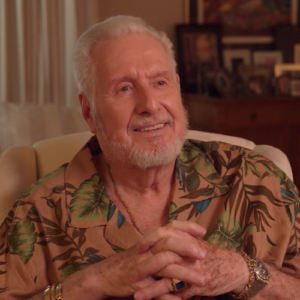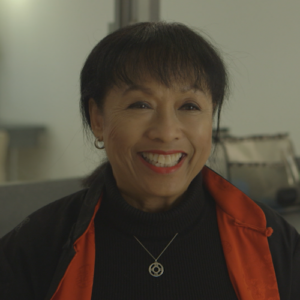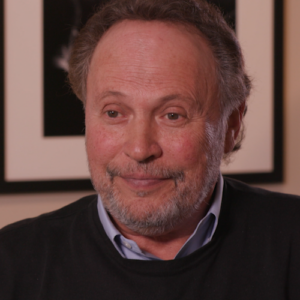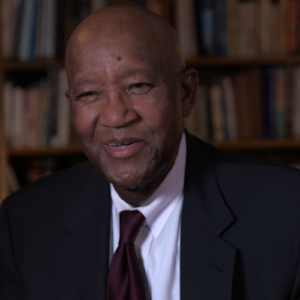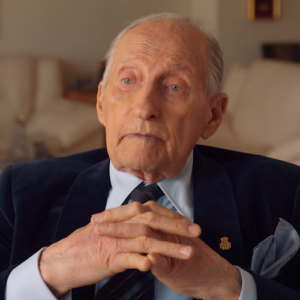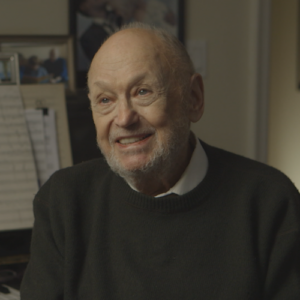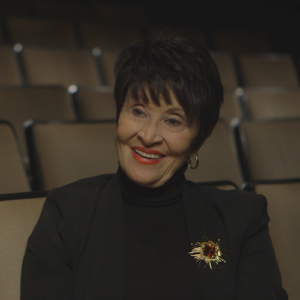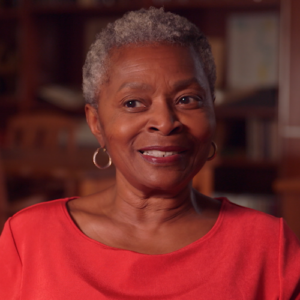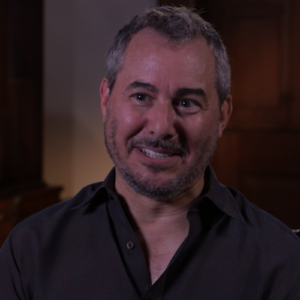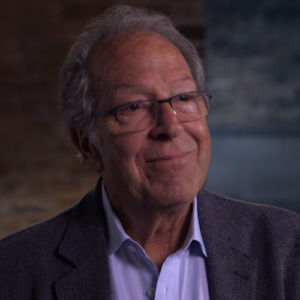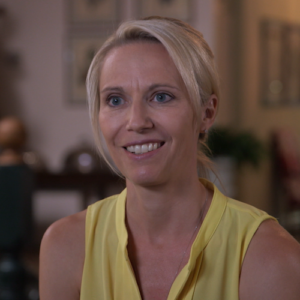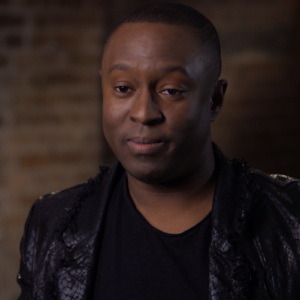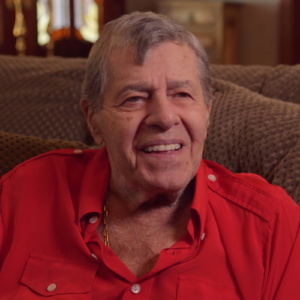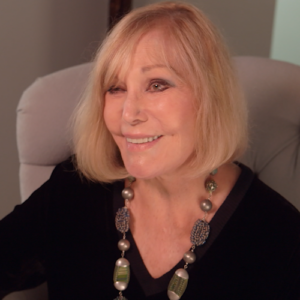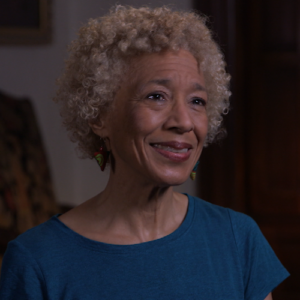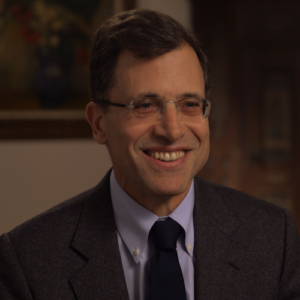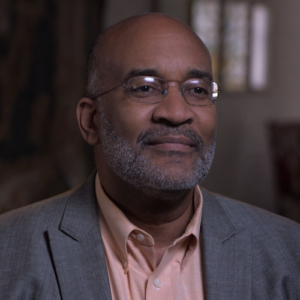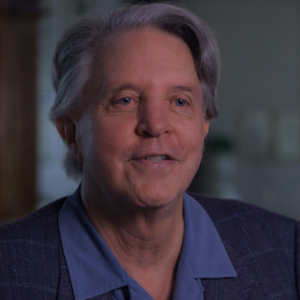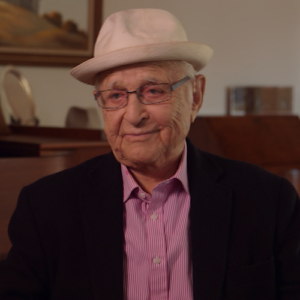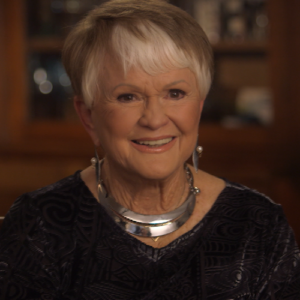Buz Kohan: My experience with Sammy Davis Jr. I have seen the facet that most people have not. And I’ve seen him under conditions that most people have never seen. And the bottom line is he was one of the most remarkable people, one of the most remarkable performers. And just a man who fought the odds all his life. And mostly one. But some of the things that I have experienced who are the times where he didn’t win. And to see the reaction of someone who’s used to winning and not winning, it’s heart rending. And it it changes your life if you’re with him. I first got involved with Mr. Davis, and this is a typical example of the man. This is back around 1962, and I just gotten out of the Army fairly recently and I had a partner and we were assigned to the Morris office in New York, and Sammy was signed to them too. And he and his agent, I believe, was Harry Couch time. And Harry said, you know, Sammy is looking. He’s doing a friar’s roast for Joey Bishop, and he needs a piece of special material to do that night. So if you guys would like to meet Sammy and and get a good introduction to him and get a chance for him to see what you can do, why don’t you write a piece for him? And I’ll set up a meeting. So we went off and we wrote a parody for Joey Bishop on what kind of full am I? And they set up the meeting and we met on, I think it was East 93rd Street. He was staying at Hilly Elkins mansion. Sammy always went to first class, whether he could afford it or not. And so we went up there, had to play the piece for him, and we met with him there and we played the piece. And Sammy said, Guys, that’s great. I love it. It’s going to be perfect. What kind of champagne do you drink? And I look at my partner and he looks at me and I said, Sammy, I just had twin boys about two months ago. We drink Enfamil at my house. So if you could send a case of formula, that would be a lot better than champagne. Well, he laughed, and sure enough, he sent the case of Enfamil for my twin boys. And that was my first introduction to Sammy.
Interviewer: Wow. The Sammy Davis Jr Show. Was that a case? An instance where Sammy did not win?
Buz Kohan: Sammy did not win on his own show. And the reasons for that were would be obvious to anyone in the business at that time. Sammy Davis was appearing on Broadway. He was filming a show called a movie called A Man called Adam. He was doing charity events. We used to have production meetings that would start at midnight at the Waldorf Towers, and he would have to call my wife and say, who is pretty eyes? Can Buzzi stay up late? Yeah, go. And we had the two the twin boys there. There were two, you know, two years old. Anyway, when Sammy agreed to do the show. He had been doing all those things and used to winning. And when he did that, there were and I’m not sure of the numbers, but I do believe that he went up against the number one show. Maybe it was Bonanza, maybe it was Lucy. But he went up against some of the most popular shows in television. He went. They they didn’t pick up his show in the South in like 13 states. They didn’t even pick it up. And that went into the Nielsen ratings. He really thought that he would beat the odds again. And he couldn’t even appear on his own show for four weeks because in those days there was a thing called the 21 to 8 clause where if you signed and did a show for a network, you couldn’t appear on another network 21 days prior to or eight days after they showed your performance. Well, we had done two specials with Sammy by then. One with Frank Sinatra called Sammy and Friends, and one with a whole bunch of kids called Sammy and the Wonderful World of Kids, I believe. And one was for ABC. One was for NBC. Sammy was trying to decide what network to go with. He decided to go with NBC. ABC was not happy. And they said, okay, we haven’t run your special yet. We’re going to run it as soon as we know when your first show is. And then for the next four weeks, you will not be on your own show because we’re going to run your special there 21 days after that show. So he couldn’t be on his own show for four weeks. Now, Sammy at that time. Was. Well, he always was. I was going to say he was extravagant. But his first show was Elizabeth Taylor and Richard Burton and Nancy Wilson. Those are the people, the stars for that show and Elizabeth Taylor and Richard Burton. You don’t see them every day on television, even with the three, one and eight claws. But he got them as a favor and we came out here to do it, I believe. Anyway, when when when the show went on, they always went too far. Sammy always went the extra step. And sometimes he would paint himself into a corner and we’d be in there in the paint bucket right there with him. But anyway, the scripted things seemed to work. Okay, But then the ad libbed of stuff, Richard and Elizabeth. Then he got Richard to sing a Welsh folk song, which and he got Elizabeth to sing. What do the simple folks do? And it was a little too much for both of them. So the critics were not too kind. And then he had to go off his own show for four weeks and he got guest hosts for this show. He got Sean Connery, who was the hottest thing at the time with James Bond. He got Johnny Carson to host one who was always hot and he got Jerry Lewis. And the fourth one, they reran Peter Pan or something like that. And those were the four weeks he was off. Now, by the time. The series was over. We had no budget left. We had no money. So he did a one man show as the last show and the very last moment of the last show after I think he sang. What kind of fool, Abi? He took the microphone, put it down on the stool and walked through the Jimmy Durante spotlight, and he said, I’ll be back or something to that effect. Then he really believed it. Now, this is the part of the story where I. I say we are. Privy to things that people don’t see. And it does change you. We had the party we were shooting out of Brooklyn to. That’s where we would do the show every week. And the last show. We were having a wrap party for everybody. And my wife came out to see the last show and everything. And he was brilliant, of course. And then there was a staircase going up from. The stage that took you right to the dressing room If you went that way, instead of going in the hall and taking the elevator and the risk. And so I said to my wife, I said, I want to say before we go to the party and everything I want to say so long and thank me just for this remarkable experience. So she said, Go up, I’ll wait. I’ll wait down here. And I went up the staircase there on the side of the stage. And I knocked softly on the door and there was no answer. And I just reached and pushed the door slightly and it was open. And when the door opened, I looked in there. Now Sammy had. A bodyguard named Joe Grant, who later was his stage manager. Joe was I mean, he could have been Mr. America. He was built beautifully. Rumor has it that his fists were registered with the police department as lethal weapons. So Joe was a gentle but. The bodyguard and he would be ready to step in at any time in case he was needed. Now I open the door and I look. In the center of the dressing room, and there’s Joe Grant sitting in a chair. And Joe has Sammy in his lap. And he stroking him It looked like the pad to. And Sammy was just distraught. And Joe was like a mother stroking her child and making him feel okay. Now, Sammy never knew. Nobody knew that I was privy to that scene. But I came down that stairs and I said to my wife, I said, Really? From now on, I’m never going to give my heart to a performer. They can have my talent, they can have my time, they can have my energy. But it is just too painful. To commit to a person and see that. And she said, I understand. 15 minutes later, Mr. SHOWBIZ came down party time and we celebrated as if it were, you know, Mardi Gras. And nobody ever knew the scene that was played out in that dressing room.
Interviewer: Well. Just for our audience. I should have asked this before, and I’m sure you know this that I just dropped. Oh, okay. Mm hmm. Okay. I mean, yeah, just for the audience knows. What was your role on the Sammy Davis Jr show?
Buz Kohan: We were. My role on the Sammy Davis Jr series was head writer with my partner, Bill Angelos. And we were together for the 13 weeks that the show was on. And we had also done the two specials with Sammy together.
Interviewer: Do you think that network. Would have traded. Jerry Lewis or. Dean Martin. Any star or any white star that way. The way they treated Sammy.
Buz Kohan: I don’t think he would have been treated any different because it was like they say, it’s just business, you know, And no matter what color he was, they were pissed off. They were very annoyed that he went with them because they thought they had a gold mine there, you know? Yeah.
Interviewer: Sammy and Sinatra’s Sammy of friends at that show worked very well. Yeah. Yeah. You wrote that as well? Yes. What were your experiences on that?
Buz Kohan: I had my experiences on the special with Sammy and Friends was was interesting because of Mr. Sinatra came out, came to New York to do the show, and the music director for Mr. Sinatra at the time was Quincy Jones, who I hadn’t met till then. And Sammy was very nervous. He was very nervous because it was his show, and he had to make sure that everybody was on their best behavior, because Mr. Sinatra had a tendency at the time, which lasted a mere 60 years after, to be mercurial, if something bothered him and you may not even know what it was, then everybody might be walking out the door before Downbeat went down. So Sammy was very nervous and we had a rehearsal. We had things prepared and Sam was going to Frank was going to sing Luck Be a Lady. Now. I had never worked with Mr. Sinatra at that time. Later on I used to write to him all the time and spent and had a wonderful relationship with him. But at that time, you know, you were forewarned. Just be careful around the lion. Don’t pet the lion. And so when we got into the rehearsal and I, like I say, working with Sammy, who was the most dynamic performer you ever wanted to meet. And I was so dazzled by his gifts. And I thought to myself, Nobody is going to top this for charisma. And then the orchestra is up there and Frank turns to Quincy and he says, Quincy. And Quince hit the downbeat and they went into luck. Be a lady. And it was like lightning when it was just the energy in the room. It just like you lit the fuze and just by saying. Quince And he did, you know, and I became a very dedicated fan of Sinatra. They got through. I mean, everybody was flying. And Frank Red, you know, most of the stuff that I had written for him and later on when I used to write for him, he would challenge me and he would call and he’d say, Oh, I need ten jokes. I’m here in Vegas and I need ten jokes. I said, okay, when you need them for he says, I go on in 4 hours. So I said, okay. And I always got them there, good, bad or indifferent. And whether he did them or not, but the check was always in the mail the next day. So that was my first relationship with Mr. Sinatra. And it was not my last relationship with Mr. Davis, because later on I worked with him when he came out to California. And when we did that last final most glorious send off the 60th anniversary show, which was fantastic. One of my. Proudest achievements.
Interviewer: We’ll get to that. We certainly we’ll get to that. Frank in hiring Quincy Jones. Frank Sinatra opened a lot of doors for black performers. Did Sammy do the same?
Buz Kohan: Sammy Sammy was more responsible for opening doors for black performers than just about anyone, and that was the basis of the song I wrote with Michael Jackson. For the 60th anniversary show.
Interviewer: This gets the 60th anniversary. Oh, yes, we’re there. All right. How did that come about?
Buz Kohan: Well, the 60th anniversary show came about as a result of George Slaughter. Convincing the network. That if anyone deserves a tribute. For a lifetime of entertainment. It was Sammy Davis, and we all knew. That he didn’t have much longer to live at that time. He had been diagnosed and he knew that the time was short. And so the network said, All right, we’ll give you. I think they said an hour to start with, but you have to deliver like four people in I think it was Frank Sinatra and Eddie Murphy and. I think it was. Michael Jackson. And the fourth one, I believe, was when Whitney Houston, I think he had to deliver. I think those are the four people he had to deliver. So. It was planned. And then he. George had a good relationship with Mr. Sinatra. And so he said, I’ll put you on first. You can get out of there quick and Frank like that, because he never like to hang around for anything. And the others he got because he had relations with them. But the real relationship was. My relationship with Michael and I went with George out to. See. Michael, who was recording out in the Valley and we went to convince Michael, who, by the way, hated to do television. Now, I know Michael, since he’s 12 and I worked with him all these years. I’ve written songs with him, I’ve done specials with him, concerts, and I knew. That Michael didn’t want to do television. And Michael prepares. I mean, he when Michael does an album, he’s got 40 songs mastered and done and prepared to the nth degree of perfection. And then they pick 13 for the album and the rest go on in a vault somewhere. So Michael is meticulous, and he’s also one of the very few out of the world geniuses that I knew. And we went out to see Michael. And the reason I point up the fact that Michael spends so much time. Preparing these things is that he never wants to be unprepared. And we came to him. It was like a week before the show. And I had written something for for him. And I said. Michael, you must do this show. I said, this is a little something that I wrote that you and you can we can play with the music and fix it up. But it’s called You Were There. And basically what it says is that I am here because you were there. And it is so true you would not be here if not for Sammy Davis and all the things that he went through that opened doors and broke precedent and set up new patterns of civility. And Michael. I’m sure George told you he took us into a little back shower and he said. I want you to feel my head. And I said, okay. And I reached over and I felt his head and in under his scalp, there were two balloons. That were under the scalp as a result of the fire when he was doing the Pepsi commercial. He had burned his scalp so bad and there was so much scar tissue that the procedure was to open up the scalp, put balloons in there to stretch the the scalp and then remove when they did their job, they would remove the scar tissue. And so it up so that he had a functioning scalp again. Now, this never came out in the papers and people didn’t know. And and he said, but this is so painful, you have no idea. And I said, I know, I understand. But there’s one thing I want you to understand. I really believe you will never forgive yourself. This is the only opportunity you have to say thank you to this man. And if you don’t do it. You will be sorry. And he said, All right, let me think about it. And I think as we left that night, he gave me a semi commitment. And the night before the show. A van pulls up outside of the Shrine Auditorium and Michael gets out. And he says, What do you want me to do? Now, this is Michael who spends months. Finding the right sounds for everything. And this is the first time he’s ever heard the song. And he sits with me at a piano in this convention center, which is completely dark and completely empty. And it’s midnight. It’s close to midnight. And we sit there and I play him the thing, and he makes some adjustments on the melody. And there’s a conductor arranger standing in the wings with George, watching this from afar, watching the process. And finally Michael says, Okay, I think we can do this, but I need a xenon light, and he’s staging the damn thing. You know, while we’re talking at midnight there and he says, I’m going to wear this red thing. And the key is he says, I’ll be there tomorrow. What time you need me? I said, Well, I need you to hear the arrangement, which they’re about to do and make and copy overnight so that the orchestra can hear it. And you come in for dress rehearsal and in the afternoon and that’ll be it. You know, it’s one chorus. That’s all it is. That’s all I want you to do. One chorus and then walk over to Sammy, give him a hug, and you will have not only paid your dues, but you will have done the right thing.
Interviewer: Do you have a copy of the song?
Buz Kohan: Yes. Okay.
Interviewer: You’re here.
Buz Kohan: Yeah. You see that folder, The folio that you took off the wall there? There was the thing that was in a folder.
Interviewer: I always cut the second.
Buz Kohan: Where’s that?
Interviewer: Okay, so this was in there. Hmm. So we were talking about. Yeah.
Buz Kohan: Okay. There were so many highlights in that show. It was a miracle evening. Everybody was on his or her best behavior. And people who could cause trouble on any stage, anywhere, any time were just so lovely and so thoughtful and so caring. And giving their very best. And the other wonderful highlight was Gregory Hines. Now, I used to I’ve known Gregory Hines for years. I’ve done the Shirley MacLaine specials with him. And I tell him, because if you look not too closely to me, if you look not too closely, you’ll see that we could be twin brothers. So I used to call him my twin brother. And Gregory’s, of course, was one of the first people we called because of his relationship with Sammy. And that was Gregory had a built. A stage, a special stage for tapping that was his. He would travel with it and go everywhere, and we had to set it up. And George Slaughter, who produced the show, convinced Gregory to first of all, he convinced Sammy to bring his tap shoes. And put him in the box that night. Now, Sammy was frail to begin with and certainly didn’t think that he would be able to do anything. But George said, bring her in, just put him down. You know, and nobody will see him. And if you don’t want to, you know, but Gregory may come to you and ask you to. It’s up to you. George, the Iron, the Velvet Fist or whatever you want to call them, has a way of convincing people to do things they don’t want to do. So he got to out of these that make sure he brings the shoes and a long shoehorn just in case he decides. So he brought the two and they were in the box. So Gregory was told, he said, See, George said, see if you can get him, you know, go up and ask him if he wants to. So he went once and Sammy, he said, I don’t think so. And so Gregory did some more tapping and George sent him back over there again. And I think either the second or third time, he convinced Sammy Mr. Showbusiness that he couldn’t resist anymore. And so he put the tap shoes on and came out. Now, there is a moment and this is what Gregory told me, and I, I really if I look on the tape, I’m not sure I can see it. But I said to Gregory afterwards as they were walking out, I said, What did Sammy say to you? And Gregory said, Well, I said, what do you want to do? Because we hadn’t prepared anything. And Sammy says, Make it easy on yourself. Then Gregory said, Oh boy, I knew I was in for a fight of my life. And sure enough, you watch that tape. And this is not an old man doing his last and final battle for pity. APPLAUSE. This is a man at the top of his game, tapping his ass off and coming Gregory and matching him at step four step. And Gregory is fighting for his life. And that was a moment, that is. And then Gregory, of course, acknowledges the way you do when you’re in the side of greatness. You bend down and you kiss those shoes. And that’s what he did. And I mean, there were moments like that all over that show, but fantastic.
Interviewer: You made a great career of being able to grasp the essence of a performer. And then craft material for him or her. What was Sammy’s essence and how did you work with that?
Buz Kohan: I got to tell you. You want to know what, Sammy? The essence of Sammy Davis. It’s an impossible thing to describe. But I’m going to tell you one story that is so indicative of Sammy Davis. When we were doing the show just before we were still in rehearsal and. Carol BURNETT. Husband Joe Hamilton was producing the show. And Sam, Sammy used to say, whenever we work with him, he would say, you know the point? My act was right. And we always said to him, Sammy. I got to tell you, we never saw your act. And you said Mr. Bad Bite. We used to call him. He said, What? I said, We never saw you. We couldn’t afford $20 cover charge to go to Bill Miller’s Riviera, you know, across the bridge there and see your act. We were poor, starving kids from the Bronx. At least you missed the bad bite. Says you’re never going to say that to me again, George. George Rhodes has conducted. I want you to go and get everything out of the library. We haven’t played since the age of three. He calls Shirley Georgia’s wife, who was his assistant chief. Shirley called the Deauville Hotel in Miami, booked me for four nights, eight shows. And starting next week, we’re all going to Miami, folks. And sure enough, Carol BURNETT, Joe Hamilton, my wife Rhea, myself, my partner, we all went down to Miami, to the Deauville Hotel. And for eight shows, we got a lesson in show business that no one has ever seen. He did everything from the first movie he ever did when he was three to the gun twirling to the impressions of Edward G. Robinson and people you haven’t heard from in years. Every song in every. And by the end, the last show on the last night, he got up there and he said, and don’t ever say you’ve never seen my act and walked offstage. And that’s the essence of Sammy. I think, you know.
Interviewer: Bravo, the great lady. You do The Carol BURNETT Show. Yeah. Sammy makes several appearances. What was Sammy like on that?
Buz Kohan: I got to tell you. I never did the show with Sammy. When he was we had left. We left another smart move. We left to do the Pearl Bailey show. And then we came back for the sixth year to do Pearl to do Carol again. But we did the first four years, and Sammy, I don’t believe, was on that, but. So. But I did have an experience with Sam. I mean, these stories are so essential to understand the man. There was a charity out here called Share Essay JRD, and it was comprised of most of the wives of some of the biggest stars you’ve ever heard. Sinatra’s wife and Johnny Carson’s wife and Henry Mancini’s wife. And a lot of these ladies at the time when they met their husbands, were dancers. And they used to do this charity event called the Cher Boomtown Party once a year. You dress in Western clothes. Was casual. It was wonderful. And they would do these production numbers. The ladies were dancing like the Rockettes, and they were terrific. And we had done a number on The BURNETT Show. My partner and I did a number called the Fun Family, and it was the second half of the show. It was a whole half hour musical take off on showbiz movies with Mickey Rooney and John Davidson and Harvey Korman and Lyle Waggoner. And it was it was one day where we wrote all five original songs and it was wonderful. And Carol was a shell lady at the time. And Joe Hamilton was asked to produce The Boomtown Show, and we decided to do. The fun family that year, and we did the show for Live with Ken Berry instead of Mickey Rooney. And we did it as a live show at the Santa monica Civic. And there was one part where where somebody is supposed to come in the door and knock on the door and they’re riding a patriotic trio. And the the the the stage managers, the stagehand says, here’s your check, Mr. Fund 1776. And he hands through the check and then he says something We ought to write a patriotic Where do you get an idea for a. Anyway the person they got to do. The stage manager was Marlon Brando. That’s the kind of people he, you know. And he wanted to know his motivation for, gosh, I said, do you knock on the door? And you say, Is it Anyway? One of those Yeah. Shows we did was I had done a number with Billy called Walking Down the Road where it was a history of transportation from one person’s walking down the road, a caveman all the way through Rockies to the moon, and they get to the moon and they after they can’t, there’s nothing they have to walk down the road. So it’s the whole transition of transportation in a number and it’s like a gospel thing called walking down the road. And we got the cheerleaders to perform the chorus parts and we got I got Sammy to do. The lead and he’d never done it before. And he learned it. And the day before the show, live show at Santa monica Civic Auditorium. Nobody else knows the number. Sammy has. I believe, for wisdom teeth removed. Now, if you’ve ever had one wisdom tooth removed, you know how painful that can be and what the recovery time is. I sincerely I don’t know what we’re going to do, he says. What do you mean what we’re going to do we’re going to do walking down the road. I said, Well, you can you can hardly talk. You can. He said, Don’t worry about it. Sammy showed up. Sammy did walking down the road. And that is Sammy. I mean, there’s just no, you know, no saying no. There’s no way to stop him.
Interviewer: Wow. Okay. Just. Sir, I need to take a little break real quick. A couple of cuts and some other official restroom, we should mention.
Buz Kohan: Right. Okay.
Interviewer: I don’t have great moments on that show where, like, when was playing Buddy Rich in Gene Krupa.
Buz Kohan: That you see? That’s what he used to do. And he would drive you crazy because it looked good on paper, you know? Sammy would say, I’m going to get Buddy Rich together and they’re going to duel with Gene Krupa. Well, you know, at that point, Gene Krupa could you know, it was not a competition. And Buddy, who is not known for being a generous soul or a nice guy when it comes to the drums, he was the best. And he demanded that acknowledgment and he earned it. And so he had. But Buddy, to his credit, backed off. I mean, he could have buried Krupa with one hand. And he just he saw what the situation was. And he backed off Sammy, but he thought it would be a great idea to have the Supremes and the Andrews Sisters should you have it? Well, you know, if you have two groups like that, one of them is going to pale by comparison. And so, you know, we had to try and stop him with some of these great ideas. I’m going to tell you a fascinating story. All right, I’ll tell you.
Interviewer: Forever two, though. Forever?
Buz Kohan: Yeah, I’ll try, because I know I’m going to end up 15 seconds in the final version anyway. But what happened? Like I say, we used to have meetings that would start at midnight at the Waldo, and he would book the Waldorf Towers to have a production meeting because he was busy all the time. And one time he. He was promised to do something in Philadelphia. A charity event. So we all had to go to Philadelphia for a production meeting. Everybody went to Philadelphia and we’re sitting there, I think was the Warwick Hotel, and we’re having this production meeting and Sammy sitting there and I’m sitting right on the floor next to him. And it. We start the meeting and we’re talking about the show and there’s a guy sitting in the back who I’d seen walking around the set back in New York, and I didn’t know who he was, but he was sitting there and he had a pad and a pen and he would be taking notes. And Sammy had decided he was going to go entertain the troops over Christmas in Germany. And this was right around Christmas. And so. Why were there in the meeting? Somebody said, By the way, Sammy, your passport’s no good. It ran out. You can’t go to Germany. And he said, Well, I have to. I promised the troops. So he says to Shirley Rhodes, Shirley, give me the vice president. Of the United States. Yes. Not the hotel. So Shirley calls Washington and we’re going on with the meeting. And sure enough, I think I’m pretty sure it was Hubert Humphrey was the vice president. And the phone rings. And somebody says, got the vice president on the line. And Sammy is so proud. And this guy in the back has taken note and. He picks up the phone and he puts his hand over the thing and he turns and I just happened to be sitting there and he says, What do you call the vice president? I said, Mr. Vice President, Hello, Mr. Vice President, Sammy Davis, hear this. I’m in a bit of a bind. I need a can I? The state that. Yes, Call the State Department. Tell him I said okay, Thank you. And he finishes the call and he goes on with the meeting. Well, no. Later on I found out that the guy in the back taking notes was Alex Haley. Who was doing an in the Playboy interview with Sammy. And that’s what he was doing there. And Sammy didn’t want to look. He wanted a new president that I know the vice president I can pick up. But he didn’t want him to know that. He didn’t know what to call him. So these stories, this wonderful about the human story when Sammy built I got to I’ll tell you this one. Sammy built an office on East 56 feet, and he had this office and he decided he was going to save money. He was not going to go to rehearsal. We’re going to build a rehearsal hall right there in the in his office. And he had this floor built, a wooden, beautiful wooden floor, and he had mirrors put up in a bar and everything. And he had all this equipment and he had everything ready. And the first act he hired for that first show. With an echo, Augie and Margot, who were flamenco dancers. Now. So they’re the first ones to use the rehearsal hall. And Sammy is so proud. He takes it to his own personal rehearsal hall, and he brings them in, and they put on their flamenco shoes, and they start to rehearse their routine and the phone rings. Well, in one of those quirky incidences of fate, my attorneys happened to be in the floor below WEISBERGER and Frosch. They were show business attorneys, and they were right below me. And as soon as they heard the first flamenco caps going on, they said, What the hell is going on out there? That was the first, last and only time the rehearsal hall was used as a rehearsal. It became a storage room. But in so typical exam, you want to do it the best. Let’s bring in sup. We were. We went walking once He decided he was going to go.
Interviewer: Very extravagant, huh? Oh.
Buz Kohan: We will. Everybody got a you know, when you were signed on a staff, no matter how low on the totem pole you were, you got a phonograph, you got a a a tape recorder, a large one, You got a small tape recorder, you got a Dictaphone machine, you got a special telephone. You’ve got everybody had equipment and you had an applause sign in his office that he used to you. Anyway, one night, one afternoon, we were going to get down. We used to rehearse at Radio City. There was a rehearsal hall in Radio City, and we used to go down to the 49th Street. And so there was always a car or driver ready to take, you know. And so this day it was a beautiful day. He decided, We’re going to walk down here. We’re going to go from 56 to 49, then we’re going to walk. So in between 56th Street and 49th Street. Walking with Sammy Davis down the street we met. He managed to spend $50,000. Now that’s $50,000 in 1966. He stopped at Lafayette Radio. He stopped at every store along the way and bought. You don’t have to get one for him to. We go into I think it was London Fog, and he buys this gorgeous raincoat and he bought us hats. We didn’t need hats, but he decided we needed hats. So he bought them. And so he says, I’m going to wear this raincoat, wrap my other thing, and I’ll take it with me. And we go outside. This is around 52nd Street or something. And there were two young girls. African-American and they see Sammy Davis and they are so excited. And this and they happened to have one of those little cameras. What was that? Davis. It would mean so much if we could take a picture with you, Sammy. You know Mr. Jenner. Of course. Buzz, take their camera and take the. Take this picture here and I’ll send it to you to take their address down. So, you know, because you use that now to develop film in those days. And so looking through the camera and he’s smiling, he puts his arm around the girls and I say, Excuse me, Mr. Class, do you want the price tag hanging from the raincoat or do you want to take. And he said he left the price tag on the raincoat and his arm is over and the price tag is hanging in that. So it’s so, you know, he comes so close to pulling it off and something oh, it’s happened. And but, you know, he was the most generous soul, you know, And.
Interviewer: He often said that Senator Patrick was one of his favorite characters. The extravagance of Serrano’s gestures appealed to him. Mm. You’ve told us about some some of Sammy’s extravagances. But why was he so exciting?
Buz Kohan: Sammy was the epitome of extravagance. You know, I had my partner in those days. Must have learned something from Sammy because he used to say I never let my income interfere with my standard of living. And that’s the way Sammy used to live. You know, he I’m sure Bird Boy might have told this story about, you know, when he met with his accountant in his account and said, you know, you’re $100,000 in debt, you know, And he was so grateful that he bought him a Tiffany watch, you know, for thank you for telling him this. And you know what we did? Sammy Davis in the wonderful world of children, everybody got a martha. It is so gold. Watch. Thank you for the wonderful world of children, Sammy Davis. You know, there was always a gift. There was always something. He had to give you something in addition to giving you himself, which was the greatest gift of all. But he had to give you something more to show that he really appreciated what you were doing for him.
Interviewer: Did that extravagance catch up with him.
Buz Kohan: At the end? You know, I mean, he was so in debt and he was he owed so much that. He had to sell a lot of those prized possessions. And I mean, he used to. He lived with Pickford. You know, Pickford with Mary Pickford. And Douglas Fairbanks built this, the largest house in Beverly Hills. So of course, Sammy had to live there. And it was that was the way he he was. There was nothing to to gesture. I don’t know what the word is, but he was, you know, he literally gave you the custom made shirt off his back, you know, whether you wanted it or not. And that’s the way he lived all the time. And he would he had so much confidence in his ability. In his talent. That he always thought. I’ll make it tomorrow. I’ll make it back tomorrow. I’ll never be unemployed. You know I can work. I know. I have this gift, this ability. And I can book myself somewhere. And I’ll pay for this tomorrow. Well, tomorrow ran out. You know.
Interviewer: One of his theme songs was I Got to Be Me. When Sammy was singing about me. And I got to be me. What me was he referring to?
Buz Kohan: Well, that was the thing, Sammy. You want to know about Sammy singing? I’ve got to be me and watch me. He was. He was a chameleon. I don’t know if some of the other people you spoke to told you about the time he came back from England with a British accent. And so I guess then the me was somebody from Britain, you know, when he was with his father and his daddy was the little the precocious little kid who could do anything when he would stand in the wings and watch Bill Robinson or any of the vaudeville acts. He was like a sponge when he used to do the gun twirling. He was the best gun twirler in Hollywood, including the real cowboys. Sammy used to do the twirling, and he had the special guns built by the Colt people. And and when he would do it, you know, you would say, wow, look at that. He would say and mean it. He says, I wouldn’t do it if I wasn’t good, you know, And that was sad because he became the best. Now, there are things that Sammy does which you you don’t do. You don’t pick up the trumpet and become a trumpet player. But when you played a trumpet player in a man called Adam, he played the trumpet. He was an exceptional drummer. And Buddy Rich will tell you that he he was terrific. He was the most remarkable tap dancer. He may not have looked that graceful, but when it came to precision tapping and creative tapping. As Gregory Hines found out, very few could touch him. And everything he did, he did with that same intensity. And he cared so much about being the best. And he had this inordinate talent, this God given talent, that wherever he tried, he was the best that he really was.
Interviewer: That’s just fantastic. Thank you, Larry. Anything?
Interviewer: Yeah. And please direct this to more buzz. You mentioned Pearl Bailey and Nat King Cole. I think for for an earlier a concurrent generation doesn’t know how difficult it was for black performers to get in the early days of TV. Las Vegas, Maybe you could just talk a little more broadly about. We mentioned that when you wrote about the Michael Jackson song, he wrote The Doors that he had to break down in the forties and fifties. What were they for? Black performers?
Buz Kohan: In the early in the forties in the fifties for to be a black performer. The areas where you could work or where you could relate to a mixed audience were minimal. I mean, there were black theaters. There were black nightclubs. The irony probably was that the black performers were so exceptional when they were that the white people would come to their clubs like the Cotton Club in Harlem and the Apollo Theater if you could. The whites would go there to see these great performers. But for many, many years, the black performers could not not only not perform to mixed audiences, but couldn’t. If they were playing a hotel, they couldn’t live in the hotel. They had to. There were hotels for black performers or boarding houses where they you know, there was a time when you the your position was so circumscribed that every black performer knew where he could perform, where he could live, where he could eat, where he could, whom he could talk to, whom he could socialize with. And nobody broke the rules because that was not the only thing that would be broken. Now, Sinatra was very big in pushing that and insisted that when Sammy performed in Vegas, that he lived at the hotel and came in the front entrance and not in the back through the kitchen. And Sammy carried that all across whenever he would work, and only ever he had the clout to do so, was able to say where people with first class people were performing first class acts for you. And we expect to be treated that way and at great personal expense at times. Sammy took the hurt, he took the pain, he took the beatings, he took the all those things that are so degrading to any human being. And he absorbed them so that in the long run, it would never happen to the next generation.
Interviewer: Wow. That’s great. Anything else.
Interviewer: One quick thing. You said all the great things that Sally could do. Is there anything she couldn’t do? Yes. Big or small.
Buz Kohan: Sami, like I say, was a a jack of all trades and a master of all. But because of his upbringing and because he was just on stage since the age of three, he never really had a formal education. And when when we did the 60th anniversary show, I gave Magic Johnson a story to tell, which Sammy had told me many, many years ago. When he was still a youngster working with the Will Mastin Trio. He really couldn’t read or write. And he would work. He would sit backstage and practice writing his autograph in case someday somebody would ask him for an autograph and he would sit. He would write to Tom Love Sammy Davis Jr. To Bill. And he would sit backstage and practice that. And finally, one day, and I think it was at Bill Miller’s Riviera, a busboy came up to him after the show and said, Mr. Davis, I think you’re the best thing I’ve ever seen. I would love an autograph. And Sammy was ready, and he says, I’d be happy to. Hands in the paper and a pen. And so he says, What’s your name, young man? And he says, Make it out to Raul. He said, The pen frozen. And I no idea how to spell Raul. And I said, Oh, look at the time that I left. And I learned after that how to spell Raul. But that was the first name that anybody asked for. So he didn’t know how to spell Raul. That’s the only thing I’ve ever seen that he could do.
Interviewer: Oh, and I want to end also on your Jerry Lewis story. And they give you the one you told earlier. Yeah. Off camera.
Buz Kohan: As an example of his generosity during that time when he was not allowed to appear on his own show. Back in 66, he got three guest hosts. He got Sean Connery. He got Johnny Carson and he got Jerry Lewis. And he wanted to give these people who had everything something special. And he knew that Jerry Lewis always wanted to have a Rolls-Royce, but was never he never felt worthy enough to go into the showroom and actually buy one. And Sammy said, I’m going to buy him a Rolls-Royce because he’s hosting this show for me. And sure enough, Sammy got in touch with the Rolls-Royce dealer out here in California where we were shooting the show. And he bought a Rolls-Royce, not a brand new one, an antique one that was, you know, a 52 silver cloud or something, a very unique thing that cost much more than he could afford even then. And he had it brought out to the parking lot of NBC where we were rehearsing. Now, my partner, Billy and I came out to do the show with Jerry Lewis and Sammy Cole from New York, and he said. Buzz, tell Jerry to go out that a parking lot because there’s something out there for him and I’ll hold the phone. So I said, okay. And I said to Jerry, I said, There’s something out in the parking lot, Jerry, that Sammy would like you to see. Well, Jerry went out to the parking lot and there’s this gorgeous Rolls-Royce sitting there, and I said, It’s yours. It’s Sammy’s gift to you. Well, Jerry was really overwhelmed, and he got in the driver’s seat, and he’s driving it up and down the parking lot there. And about 20 minutes goes by. And he’s really I thought to myself, wow, he hit the nail on the head. Perfect, Sammy. And I said, you know, Sammy still on the phone back there is 20 minutes. And I go back inside and I pick up the phone. I said, The Jerry is here and I’m going to put him on Sammy. And I hand the phone to Jerry. And Sammy, I guess, said, Well, what do you think? And as I recall it, Jerry said, Spare tire me there and hung up on him. So even then, in the height of his most generous gift, he came in second. And that’s the story.


